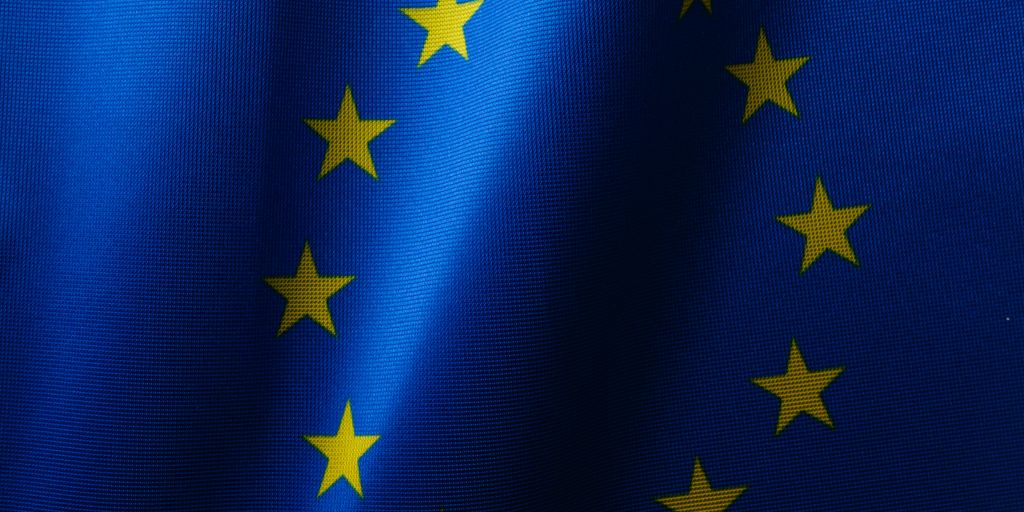The digital world is always changing, and so are the rules that try to keep things safe and clear online. A big new law from the European Union is the Digital Services Act, or DSA. This guide is here to break down what the digital services act dsa is all about, who has to follow it, what they need to do, and what happens if they don’t. It’s a pretty big deal for anyone doing business online in the EU.
Key Takeaways
- The digital services act dsa is a new EU law meant to make the internet safer and more transparent for everyone.
- It covers a wide range of online services, from social media to online marketplaces, with stricter rules for very large platforms.
- Companies must be more open about how they handle illegal content and advertising, and give users more ways to report problems.
- Not following the digital services act dsa can lead to hefty fines, up to 6% of a company’s global revenue, and other penalties.
- For users, the digital services act dsa means more control over their online experience, better protection, especially for kids, and clearer information about content decisions.
Understanding the Digital Services Act (DSA)
So, what exactly is this Digital Services Act, or DSA, that everyone’s talking about? Think of it as the EU’s big update to how online services, especially the big platforms we all use, need to behave. It’s a pretty big deal because it’s trying to make the internet a safer place for all of us, while also making sure businesses have a fair shot at competing. It’s not just about stopping bad stuff; it’s also about making sure our basic rights are respected when we’re online.
Key Objectives of the Digital Services Act
The main goals here are pretty straightforward, really. First off, they want to create a digital space where users are better protected. This means dealing with illegal content and making sure platforms are more responsible for what’s happening on their sites. The DSA aims to rebalance the power between users, platforms, and governments, putting citizens more in the center of things. Secondly, it’s about leveling the playing field for businesses. Smaller companies shouldn’t be pushed out by the giants, and everyone should have a fair chance to grow and innovate. It’s all about making the digital market work better for everyone involved.
Modernizing the Digital Regulatory Framework
Before the DSA, the rules for online services were pretty old, dating back to a time before social media and massive online marketplaces were even a thing. The DSA updates these rules to fit today’s digital world. It recognizes that online platforms have a big impact, and with that comes responsibility. It’s like updating the traffic laws for self-driving cars instead of just horse-drawn carriages. This modernization means clearer rules for everyone, from the biggest tech companies to smaller online shops.
Protecting Fundamental Rights Online
This is a big part of the DSA. It’s about making sure that when you’re online, your rights – like freedom of expression, privacy, and protection from discrimination – are still upheld. The Act puts specific requirements on platforms to handle illegal content properly and to be transparent about how they moderate what people post. It also includes special protections for children, like stopping targeted ads aimed at minors. Basically, it’s trying to ensure that the online world respects the same rights we expect offline.
Scope of the Digital Services Act
So, who exactly has to play by the Digital Services Act’s rules? It’s a pretty wide net, covering a bunch of online services that most of us use daily. Think social media sites, online marketplaces where you buy stuff, places where you share videos or photos, app stores, and even sites for booking hotels or flights. Basically, if you’re an online intermediary or platform connecting people or businesses within the EU, you’re likely on the DSA’s radar.
Providers Covered by the Digital Services Act
The DSA casts a wide net, applying to various online intermediary services. The idea is that the obligations placed on these services should match their role, their size, and how much of an impact they have on the online world. It’s not a one-size-fits-all situation; smaller players have different responsibilities than the giants.
Very Large Online Platforms and Search Engines
Now, for the really big players – the Very Large Online Platforms (VLOPs) and Very Large Online Search Engines (VLOSEs). These are defined as services with more than 45 million active users per month within the European Union. Because they reach such a massive audience, they face the strictest set of rules under the DSA. These extra obligations are designed to manage the significant societal risks these platforms can pose, like the spread of illegal content or disinformation.
Intermediary, Hosting, and Online Platform Services
Beyond the VLOPs and VLOSEs, the DSA also sets out rules for other types of online services:
- Intermediary Services: This is a broad category that includes services like internet access providers or domain name registrars. Their obligations are generally lighter, focusing on cooperation with authorities.
- Hosting Services: This covers services like cloud computing or web hosting. They need to have clear processes for users to flag illegal content and for authorities to request its removal.
- Online Platforms: This is a big one, including social networks, online marketplaces, and app stores. They have more responsibilities, such as implementing systems to handle user complaints about content moderation and providing transparency about their advertising practices.
Core Obligations Under the Digital Services Act
So, what exactly do these online services have to do under the new Digital Services Act? It’s not just about saying ‘be good online.’ There are some pretty specific requirements, especially for the big players.
Transparency Reporting Requirements
First off, a lot of these platforms need to be more open about what they’re doing. This means they have to publish regular reports. These reports aren’t just a quick summary; they need to detail things like how they handle illegal content, what their content moderation policies are, and how many times they’ve had to take stuff down. For very large online platforms (VLOPs) and very large online search engines (VLOSEs), these reports are even more detailed and frequent. Think about it – if a platform has millions of users, knowing how they manage what’s posted is pretty important for everyone.
Mechanisms for Reporting Illegal Content
This is a big one. The DSA makes it easier for users to flag things that shouldn’t be online, like hate speech or illegal goods. Platforms have to set up clear and easy-to-use systems for people to report this stuff. Once something is reported, the platform has to actually look at it and let the person who reported it know what happened. It’s like having a customer service line for bad content, but for the whole internet. They also need to explain why they made a particular decision about a piece of content, which is a nice change from just getting a generic ‘your post violated our terms’ message.
Content Moderation and User Protection
This is where things get really detailed. Platforms can’t just ignore illegal content. They have to actively work to remove it. For the really big platforms, this includes doing risk assessments to figure out what kind of bad stuff might pop up on their service and then putting measures in place to stop it. This could mean anything from better AI to catch harmful posts early to having more human moderators who understand different languages and cultural contexts. They also have to be careful about how they moderate, making sure they aren’t unfairly taking down legitimate content. It’s a balancing act, for sure.
Digital Services Act Enforcement and Consequences
So, what happens if a company just doesn’t play by the Digital Services Act rules? Well, it’s not pretty. The EU isn’t messing around when it comes to making the internet a safer place, and they’ve put some serious teeth into the DSA.
Financial Penalties for Non-Compliance
First off, there are the fines. And these aren’t your slap-on-the-wrist kind of fines. Companies can be hit with penalties up to 6% of their global annual turnover. For the really big players, the ones with millions of users, we’re talking about billions of euros. It really makes you think about how important it is to get this right from the start.
Periodic Penalties and Access Restrictions
It doesn’t stop at a one-time fine, either. If a company keeps messing up, the EU can slap on periodic penalties. This is basically a daily or weekly charge until they fix the problem. In really bad cases, where a company just refuses to comply, authorities can even ask courts to block access to their services within the EU. That’s a pretty big deal if you’re trying to operate in the European market.
Reputational Damage and Increased Scrutiny
Beyond the money and access issues, there’s the reputation hit. When enforcement actions happen, they’re often made public. Imagine your company’s name being all over the news for failing to protect users or spread illegal content. That’s a quick way to lose customer trust and, frankly, business. Plus, companies that don’t comply can expect a lot more attention from regulators, meaning more audits and investigations, which can really slow things down.
Impact of the Digital Services Act on Users
So, what does this whole Digital Services Act thing actually mean for us, the regular folks who spend time online? Well, it’s actually pretty good news, mostly. Think of it like the EU saying, "Hey platforms, you need to play nicer and be more upfront with people."
One of the biggest changes is how you can report stuff that’s not okay. Before, it was kind of a guessing game. Now, platforms have to make it super easy for you to flag illegal content. They also have to tell you what happened with your report. It’s not just a black hole anymore.
And for the younger crowd? There are some extra protections. Platforms can’t just target ads at kids anymore, which is a big deal. Plus, when these platforms decide to take down content or suspend accounts, they have to be clearer about why they did it. You’ll have more say in what you see and how your information is used.
Here’s a quick rundown of what you can expect:
- Easier reporting: Reporting illegal content should be straightforward, and platforms must acknowledge your report and explain their actions.
- Better kid protection: Targeted advertising aimed at minors is a no-go.
- More transparency: You’ll get clearer explanations when content is removed or accounts are affected.
- More control: You’ll have more options regarding the content recommended to you.
Digital Services Act and Business Operations
So, the EU’s Digital Services Act (DSA) is a pretty big deal for businesses that operate online, especially if they’re reaching customers in Europe. It’s not just about following rules; it’s about how you do business in the digital space now. The whole point is to make things fairer and safer for everyone involved, from the big players to the small startups.
Ensuring a Level Playing Field for Businesses
One of the main goals of the DSA is to stop illegal stuff from spreading online and to make sure that platforms aren’t giving unfair advantages to certain businesses. Think about it: if a marketplace allows counterfeit goods to be sold easily, that’s not fair to legitimate sellers. The DSA wants to fix that. It means platforms have to be more careful about what’s being sold and how it’s advertised. This helps create a more honest marketplace where everyone has a fair shot. It’s about making sure that the rules apply to everyone, not just the little guys.
Facilitating Growth for Smaller Platforms
It might seem like these new rules are just for the giants, but the DSA actually has provisions to help smaller businesses and startups grow. The idea is that if the online environment is safer and more predictable, it’s easier for new companies to get started and expand. The DSA aims to reduce some of the burdens that might have previously made it hard for smaller platforms to compete. It’s about making the digital economy more accessible, so innovation can really take off. You can find more details on how the DSA aims to create a safer digital environment at [e7cc].
Navigating Compliance for EU Market Access
If your business wants to sell to people in the EU, you’ve got to pay attention to the DSA. It sets out clear obligations for different types of online services, like marketplaces, social media sites, and hosting providers. These obligations can include things like:
- Having clear terms and conditions for users.
- Setting up easy ways for people to report illegal content.
- Being transparent about how content moderation works.
- Providing specific information about the ads shown on your platform.
Getting this right is key if you want to keep operating in the EU market. It’s not just about avoiding fines; it’s about building trust with your users and showing you’re a responsible business. The rules are designed to apply across the entire EU, so you get a single set of regulations to follow, which simplifies things compared to dealing with different rules in each country.
Wrapping Up: What the DSA Means for Everyone
So, that’s the lowdown on the EU’s Digital Services Act. It’s a pretty big deal for how online services work in Europe, aiming to make things safer and fairer for all of us. Companies big and small need to pay attention to what’s expected of them, or they could face some serious trouble. For users, it means more transparency and a bit more control over what you see online. It’s definitely a step towards a more responsible digital world, and it’ll be interesting to see how it all plays out.
Frequently Asked Questions
What exactly is the Digital Services Act (DSA)?
Think of the DSA as a set of new rules for websites and apps that let people share stuff or buy things online. It’s like a safety guide for the internet, making sure things are fair and that bad stuff gets taken down quickly. It covers everything from big social media sites to online stores.
What are the main goals of the DSA?
The main goals are to make the internet safer for everyone, especially kids. It also means online companies have to be more open about how they work, like why you see certain ads or why a post might be removed. Plus, it helps smaller businesses compete fairly with bigger ones.
How does the DSA affect regular internet users like me?
If you use online services like social media, online shops, or apps in Europe, the DSA helps protect you. You get more say in what you see, it’s easier to report stuff that’s not allowed, and companies have to be clearer about how they remove content or show you ads.
Which online companies have to follow the DSA rules?
Companies that offer online services in Europe have to follow these rules. This includes social media sites, online marketplaces, and even web hosting companies. The bigger the company and the more people use it, the more rules they have to follow.
What do companies have to *do* under the DSA?
Companies need to be clear about how they remove illegal content and have easy ways for users to report it. They also have to explain how their systems work, especially for big platforms that have a lot of users. Think of it like needing to show your homework to the teacher!
What happens if companies don’t follow the DSA?
If companies don’t follow the rules, they can get into big trouble. They might have to pay huge fines, sometimes a percentage of all the money they make. In really bad cases, their services might even be stopped in Europe.














